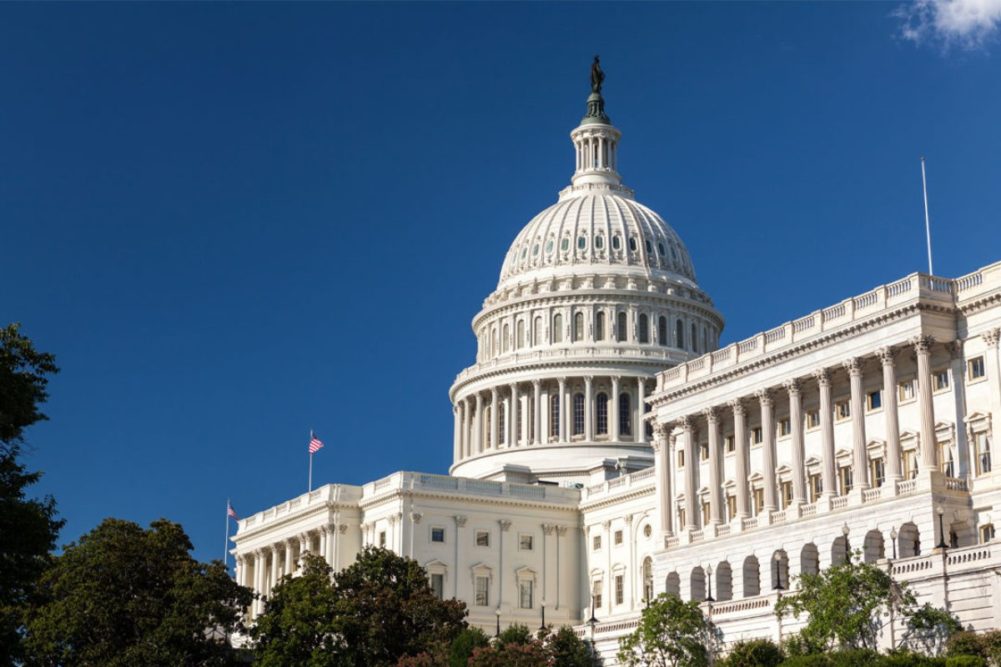WASHINGTON – The framework for the next Farm Bill set forth by the Senate Agriculture Committee drew the approval of dairy trade associations.
US Sen. John Boozman (R-Ark.), ranking member on the committee, released a plan for the Farm Bill that reflected the priorities of Senate Republicans.
Much like when the US House Agriculture Committee approved its version of the 2024 Farm Bill in May, the International Dairy Foods Association (IDFA) applauded various features of the Senate committee’s structure that mirror the organization’s preferences, including an outline for a SNAP Dairy Nutrition Incentives Program (DNIP).
IDFA noted the DNIP would expand the SNAP Healthy Fluid Milk Incentives (HFMI) program by including all milk varieties, plus cheese, yogurt and cultured products. IDFA said the DNIP outline presented by Senate Republicans is representative of a previously introduced bipartisan Dairy Nutrition Incentives Program Act, which IDFA supported and still considers the center of the organization’s Farm Bill advocacy.
The dairy organization shared that the Dairy Nutrition Incentive Program Act as of June 11 had eight bipartisan cosponsors in the Senate and 15 bipartisan House cosponsors. The act would expand HFMI projects, which were put in place by the 2018 Farm Bill and continue to incentivize milk purchases among SNAP participants in 19 states.
The Senate Republicans’ framework for the Farm Bill also addresses the formula for calculating the price of Class I fluid milk, making sure it will be determined by the US Department of Agriculture (USDA) through the Federal Milk Marketing Order (FMMO) process that already is underway.
Said Michael Dykes, president and chief executive officer of IDFA: “The USDA process to make changes to the FMMO system through a federal order hearing has been underway for well over one year, and USDA will soon announce its recommended FMMO decision. IDFA members feel strongly that the Farm Bill should not predetermine the outcome of USDA’s ongoing FMMO process.”
IDFA also approved of the Senate Republicans’ plans for cost surveys that would create make allowances that “accurately reflect” dairy product manufacturing costs. The organization said the framework reflects its requests for the next Farm Bill to include cost surveys for butter, cheddar cheese, nonfat dry milk and whey.
What’s more, IDFA approved of a provision that would eliminate “the possibility that forward pricing programs for Class II, III and IV proprietary plants and their producers will lapse” if a new Farm Bill is not in place before the current one expires.
The trade association’s frequent advocacy for whole milk and reduced fat 2% milk in schools also falls in line with the newly presented framework.
“There remains much work to do for both committees and all of Congress to develop a bipartisan Farm Bill that can win passage in both chambers to become law,” Dykes said. “IDFA and its member leaders will continue to advocate with bipartisan committee leaders, as well as their respective staffs, to ensure our industry’s full set of priorities are reflected in future Farm Bill drafts and, ultimately, a bipartisan Farm Bill that can be enacted into law.”
WCMA welcomes framework
Members of the Wisconsin Cheese Makers Association (WCMA) also shared their appreciation for the Senate Republicans’ Farm Bill plans, noting the framework’s “strong support” for Dairy Business Innovation Initiatives (DBII).
“To have both parties in the Senate calling for more monies for DBII in the next Farm Bill demonstrates both their appreciation of the program’s impact – creating a resilient food supply chain and stronger rural communities – and their understanding of the challenges dairy farmers and processors face now,” said Rebekah Sweeney, WCMA’s senior director of programs and policy. “As work continues on the Farm Bill, we hope all lawmakers will agree that a measured increase in DBII funding over the next five years will pay off for generations to come.”
WCMA noted that since the 2018 Farm Bill launched DBII, the Dairy Business Innovation Alliance administered by the association and the Center for Dairy Research has provided more than $16.5 million to dairy businesses via 213 grants.

